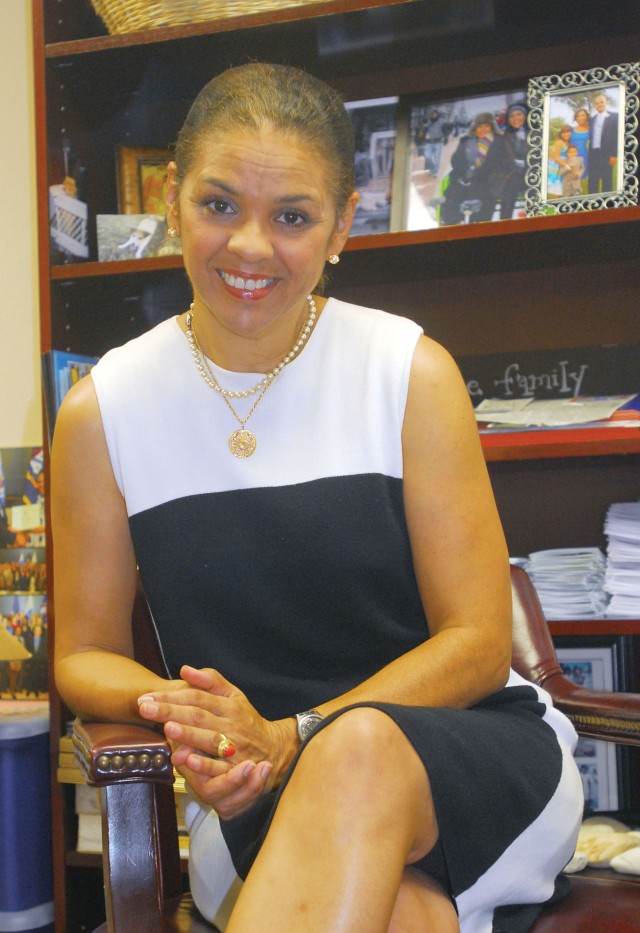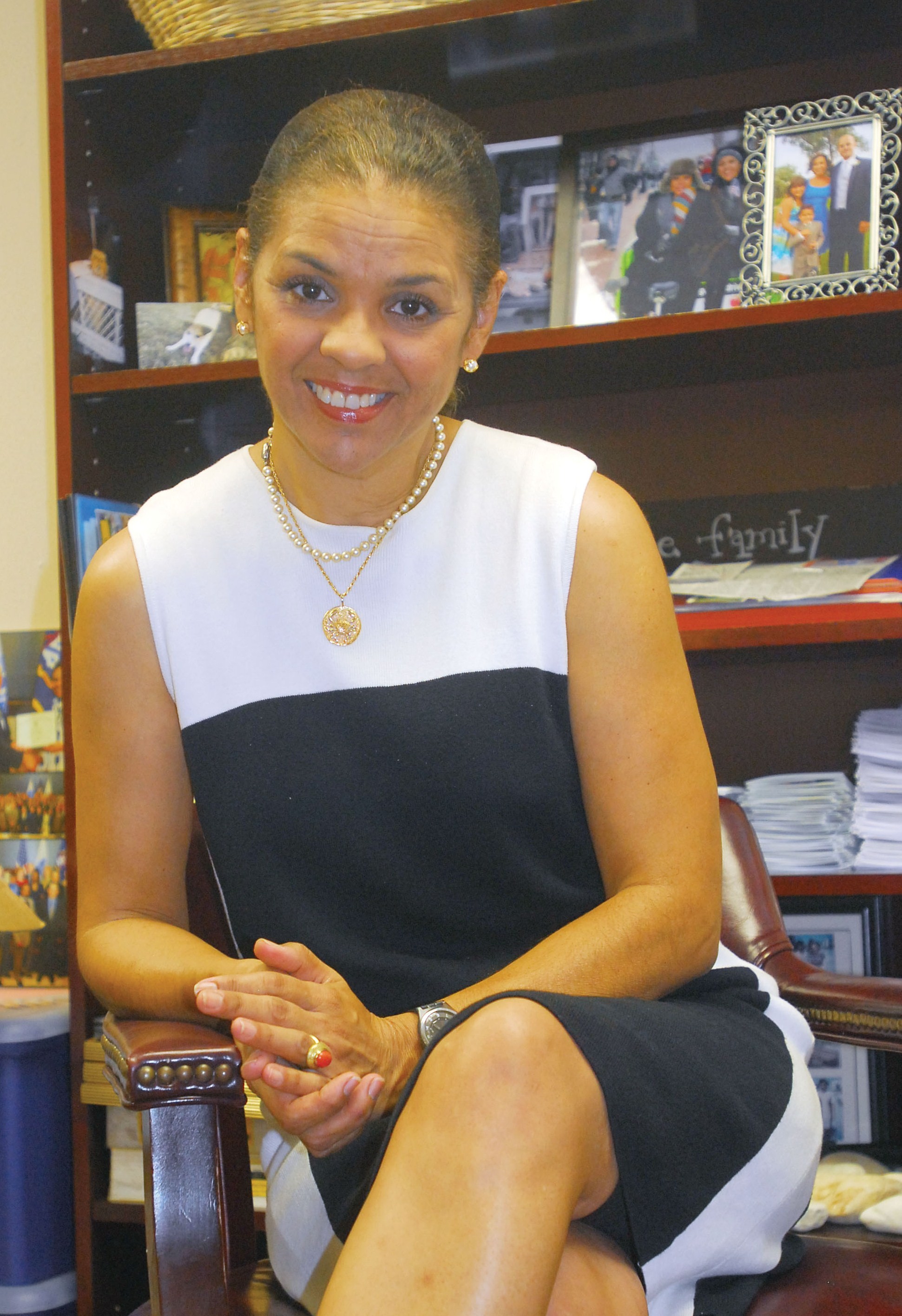FORT BENNING, GA - I'm going to die one day, but it's not going to be from breast cancer," said Carmen Davis, marketing manager for Army Community Service. It was the same sentiment she told herself nearly six months ago when she was diagnosed with ductal carcinoma in situ, or "stage-zero" breast cancer.
The second-leading cause of cancer death in women, breast cancer affects about one in eight women, with about a 3 percent mortality rate, according to the American Cancer Society.
"I was not supposed to be that one in eight," Davis said. "That was something the neighbor's wife got, your co-worker, the postal lady; it was just not supposed to be me. I had other plans that did not include breast cancer.
"I walked in a fog for about a week. And then one day a light went off in my head, and I said, 'I have breast cancer; it doesn't have me.' And I never looked back."
After three surgeries, Davis is cancer-free. Now, she wants to get the message out to women of all ages that the best chance of recovery lies in regular examinations.
"I am a product of early detection and a product of due diligence on a yearly examination. I had no lump, no bump, no mass. I didn't have anything that would have led to tell me I needed to go. I just go every year at the same time," she said. "I've had women tell me 'I don't want to know.' I've had women tell me 'I'm a little late this year but maybe I'll go next year' or 'I really need to do that; I haven't been in five years.' And I'm amazed."
Davis said she had none of the common precursors to cancer, such as a family history.
"The first thing I asked the doctor is 'What did I do wrong'' And she says, 'If we knew that, you and I wouldn't be sitting here talking.' We all have cells that could turn into cancer," Davis said.
"They can turn at any time. I knew a young lady - she was 20 or 21 - invasive breast cancer, lost both of her breasts. You just never know."
Through what she calls "cancer encounters," Davis found many women younger than 40 were struggling with breast cancer. She met people of all ages and walks of life dealing with breast cancer in their own or their loved one's life.
"Iowa, Ohio, North Carolina, Tennessee - I kept meeting these people. We talk; we e-mail; we exchange pictures," Davis said. "So my therapy has been there's always somebody out there. What I want to do is make a difference."
Yasmith Cathright, a public health nurse with Martin Army Community Hospital, said preventative medicine is the best way to deal with breast cancer.
Although conventional wisdom suggests it is women ages 40 and older who need yearly mammograms, younger women may need regular check-ups as well. Cathright said women should know their family history and consult with their doctor in regards to mammogram frequency.
Cathright, who lost her aunt to breast cancer 23 years ago, said the seriousness of taking preventive steps hit home for her when two of her four female coworkers where diagnosed within six months of each other.
"It really brought it home," she said. "We should never get slack on our health, and we should always make sure we do what we need to do regardless. It's not a lengthy procedure to do self breast exams or to take care of yourself. Just take a minute out to do what you need to do: less stress, eat well, try not to smoke, anything that will assist. It falls into the realm of prevention."
During October, nationally recognized as Breast Cancer Awareness Month, the hospital is trying to get the word out about prevention, treatment and symptoms.
A Breast Cancer Festival, with one-on-one counseling and resource information, will be held at the PX Oct. 15. A two-mile fun run, where the public can run in honor of survivors and victims to breast cancer, will be held Oct. 24 at Stewart-Watson Field. For more information, see the related article on B1.
For information about support groups, workshops, scholarships and literature related to breast cancer, call Alice Gammage, the Fort Benning American Cancer Society liaison, at 706-324-4573.
As for Davis, she is 50 days past reconstructive surgery, taking tango lessons, planning a trip to South America and living life.
"This has been my breast cancer journey, and it's not over. Life as you know it no longer exists. You're living life in recovery," she said. "It's going to be fine."


Social Sharing